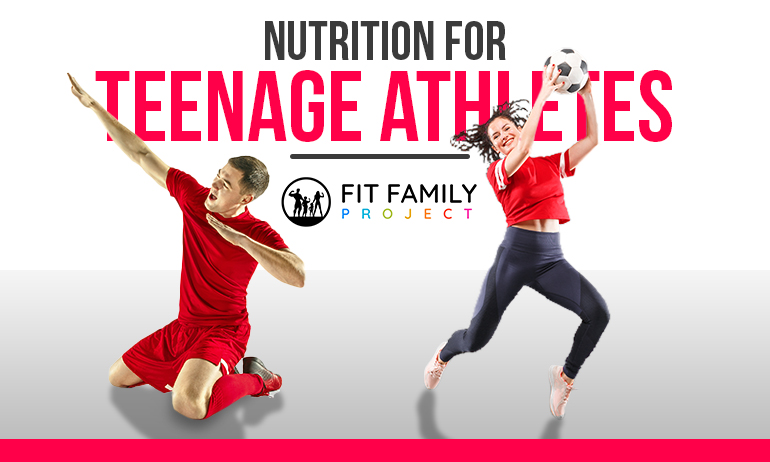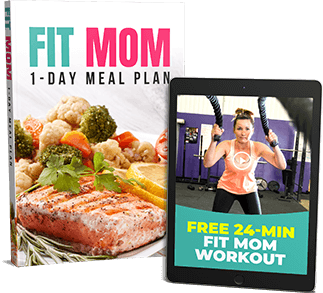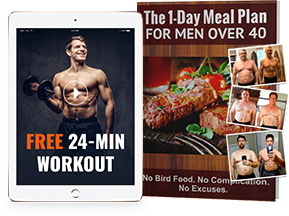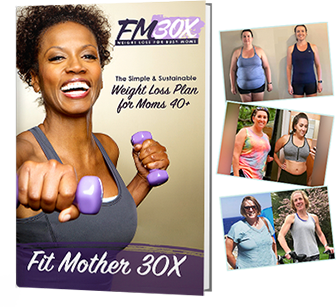Nutrition for teenage athletes isn’t as difficult as it may seem with the right knowledge and tools in place!
Teen athletes have different nutritional needs than their less-active peers, but it’s not the same as an adult athlete.
How can teens playing different sports get the proper nutrition they need?
The bottom line when it comes to nutrition for teenage athletes is to offer them a variety of nutritious meals and snacks throughout the day and make sure they drink a lot of water.
Encourage your teen to listen to their body when choosing healthy meals, snacks, and drinks.
Cook at home whenever possible instead of dining out, and offer meals and snacks often (at least every few hours).
Help your child get plenty of uninterrupted sleep each night (8-11 hours per night) to allow their body to properly recover after intense or prolonged training.
Encourage them to take time off to rest, heal, recover, and reduce the risk of injuries.
Here’s what else you need to know about nutrition for teenage athletes!
Calorie Needs for Active Teenagers
While teenagers don’t have to count calories, it’s helpful to know how many calories their bodies need to keep energy levels high and optimize sports performance.
According to the Dietary Guidelines for Americans, many active teen boys and girls require:
Active Teen Boys
- Age 13: 2,600 calories
- Age 14: 2,800 calories
- Age 15: 3,000 calories
- Age 16: 3,200 calories
- Age: 17: 3,200 calories
- Age 18: 3,200 calories
- Age 19: 3,000 calories
- Age 20: 3,000 calories
Active Teen Girls
- Age 13: 2,200 calories
- Age 14: 2,400 calories
- Age 15: 2,400 calories
- Age 16: 2,400 calories
- Age: 17: 2,400 calories
- Age 18: 2,400 calories
- Age 19: 2,400 calories
- Age 20: 2,400 calories
Very Active Teenagers
Very active teenage girls might need up to 3,000 calories per day to meet the physical demands of intense sports training, depending on their size and the number of calories they burn throughout the day.
Very active teen boys may require up to 4,000 calories (or more) daily.
Very active teens are those involved in endurance training or intense exercise, including sports games or training that lasts longer than one hour.
Key Food Groups for Teenage Athletes
When offering your teenager meals and snacks, choose a variety of foods from each of the following groups:
Protein Foods
Healthy, protein-rich foods enhance growth and development in teens and help them maintain and build muscle.
Choose chicken, turkey, fish, seafood, very lean beef, eggs, uncured turkey bacon, tofu, seitan, or other meatless proteins.
Additional foods high in protein include peas, lentils, dried beans, nuts, seeds, peanut butter, and other nut butter.
Include protein-rich food at each meal.
Vegetables
Offer your teen a variety of different vegetables every day.
Pick non-starchy veggies like leafy greens, cucumbers, tomatoes, bell peppers, asparagus, broccoli, cauliflower, zucchini, carrots, celery, mushrooms, and onions.
Add in starchy vegetables, such as corn, peas, lentils, dried beans, and sweet potatoes.
Encourage teens to eat at least 3 servings of veggies daily.
Fruits
Fresh fruits give teenagers energy and they’re loaded with fiber, vitamins, and minerals.
Choose blueberries, strawberries, raspberries, apples, bananas, oranges, kiwi fruit, grapes, pears, peaches, watermelon, cantaloupe, honeydew melon, or any favorite fresh fruit.
Encourage your teen to consume about 2-3 servings of fruit daily.
Avoid fruits canned in syrup.
Whole Grains
Whole grains make an excellent fuel source for teen athletes.
Offer them whole-grain pasta, brown rice, quinoa, oatmeal, whole-grain bagels, whole-grain cereals, whole-grain English muffins, whole-grain tortillas, and whole-grain bread.
Steer clear of white bread, white rice, sugary cereals, baked goods, and other refined grains.
Dairy Foods or Plant Equivalents
Dairy foods and many plant-based equivalents are rich in protein, calcium, vitamin D, and other essential nutrients.
This food group helps teens maintain strong bones, muscles, teeth, and high energy levels during workouts.
Examples of nutritious dairy foods and their plant-based equivalents include cottage cheese, milk, Greek yogurt, cheese, kefir, and plant milk.
Many types of protein shakes are also a good source of protein and calcium for teens, but make sure to choose protein shakes low in added sugar.
Healthy Fats
Healthy fats are crucial for brain development in teenagers.
Dietary fat also provides energy, help teens maintain healthy hair, skin, and nails, promotes satiety (feeling full), and enhances vitamin absorption.
Choose avocados, olive oil, other plant oils, nuts, seeds, nut butter, and hummus made with olive oil.
Eat fatty fish like salmon or tuna, and take omega-3 supplements to enhance brain function and development if your doctor recommends it.
Hydration Tips for Teenage Athletes
Drinking plenty of water before, during, and after exercise is crucial to maximizing athletic performance in teen athletes.
Encourage your teenager to keep a water bottle with them at all times and drink water often.
General hydration guidelines for teenage athletes include:
- Drink 2-3 cups of water 2-3 hours before you start exercising
- Drink 1 cup of water 20-30 minutes before exercise
- Drink 7-10 ounces (about 1 cup) of water every 10-20 minutes during exercise
- Drink 1 cup of water within 30 minutes after exercise
- Drink a sports drink or juice, in addition to water, if intense exercise lasts longer than 1 hour
If your urine is bright yellow in color, that’s a sign of dehydration. Urine should be clear or light yellow in color.
If teens lose water weight during exercise, they should drink 2-3 cups of water for every pound of weight lost.
Choose cool water, rather than room-temperature water, to enhance its palatability and absorption.
Game-Day Meal and Snack Recommendations
Teenage athletes should eat about 5-6 small meals and/or snacks throughout the day (or eat every few hours) to maintain high energy levels, recover properly after exercise, and maximize athletic performance.
Doing so helps meet their body’s calorie, protein, carbohydrate, and dietary fat requirements.
A sample pre- and post-game meal plan might look like this:
- Eat a meal 3-4 hours before sports training or games. Choose plenty of carbs and protein, but don’t go overboard with fat. Avoid sugary foods and drinks.
- Less than 3 hours before games or practices, eat a light meal or snack that includes easy-to-digest carbohydrates, such as fruit, 100% juice, sports drinks, or crackers.
- After a game or intense training, eat or drink something within 30 minutes after the activity and again 2 hours later to help your body recover and replenish energy stores. Drink a lot of water and eat healthy protein foods plus fiber-rich carbs.
Consume pre- or post-workout snacks as needed throughout the day to meet teenagers’ nutritional needs.
Encourage your teen to eat whenever they feel hungry (as long as they make healthy choices).
At mealtime, serve at least one protein food, non-starchy vegetable, whole grain or starchy vegetable, healthy fat, and water, milk, or plant milk.
Pre-Workout Fuel
Before your teenager trains or plays in a game, it’s important to fuel their body properly.
That means eating a nutritious, well-balanced meal containing protein and complex carbohydrates the night before, and drinking plenty of water to stay hydrated throughout the day.
The most appropriate pre-workout nutrition plan depends on your child’s needs, preferences, lifestyle, and time of day their training or game takes place.
Sample pre-workout meal and snack ideas include:
3-4 Hours Before Exercise
- Oatmeal with sliced almonds, eggs, uncured turkey bacon, and fruit
- Whole-grain pasta, vegetables, chicken, and seasoned olive oil
- Quinoa, vegetables, and very lean ground turkey with sliced avocados
- Egg sandwich on a whole-grain English muffin with sliced tomatoes and avocados
- Protein shake made with protein powder, oatmeal, fruit, nut butter, and ice
- Brown rice bowl with chicken, very lean steak, or shrimp plus veggies and shredded cheese, sliced avocados, or seasoned olive oil
- Sub sandwich on whole-grain bread with chicken or tuna, veggies, cheese or avocado slices, and oil-based dressing
- Tortellini prepared with seasoned olive oil plus veggies
- Whole-grain waffles with fruit, Greek yogurt, and walnuts
- Whole-grain cereal with milk or plant milk and eggs or uncured turkey bacon
- Omelet made with veggies, black beans, and sliced avocados plus whole-grain toast topped with olive-oil butter or mashed avocado
- A very lean turkey burger or a veggie burger topped with sliced veggies and cheese or avocados on a whole-grain bun
- Grilled chicken with veggies (plus avocados, hummus, or cheese) wrapped inside a whole-grain tortilla
- Veggies, hummus, and seitan or tofu wrapped inside a whole-grain tortilla
Within 30 Minutes of Training
- Fresh fruit
- Dried fruit
- Fruit juice
- Applesauce
- Sports gels
- Energy bars
- Trail mix
- Small peanut butter and jelly sandwich
- Small peanut butter and banana sandwich
- Veggies or whole-grain crackers dipped in hummus
- Nut butter and banana slices on whole-grain crackers
Mid-Workout Fuel
Water is the best option for hydration during sports training, especially for workouts and games lasting 60 minutes or less.
If your child trains or plays in games lasting longer than one hour, they can add a sports drink containing 6-8% carbohydrates, juice, fruit, sports gels, applesauce squeeze pouches, or other foods or drinks containing simple carbohydrates that offer a quick boost of energy.
If your child plays multiple sports games in a day, make sure they refuel between games with a light meal or snack containing carbohydrates and some protein.
They might choose peanut butter and jelly or tuna salad sandwich, hummus with whole-grain crackers, yogurt with fruit and nuts, or a whole-food energy bar.
Post-Workout Nourishment
After your child exercises, make sure they drink water and refuel their body as soon as possible.
They can consume foods (or drinks) containing some carbohydrates and protein soon after training, and eat a well-balanced meal several hours later.
Offer your active teen some of the following post-workout meals and snacks:
Within 30 Minutes Post-Exercise
- Fruit (or 100% juice) with nuts or nut butter
- Cottage cheese with fruit
- A protein shake blended with fruit
- Whole-grain cereal with milk
- Peanut butter and jelly sandwich on whole-grain bread
- Peanut butter and banana sandwich on whole-grain bread
- Reduced-sugar chocolate milk
- Hummus with whole-grain crackers or fresh veggies
2-3 Hours after Training
- Pasta with seasoned olive oil plus veggies and chicken, shrimp, or very lean steak strips
- Shredded chicken or very lean ground turkey chili made with black and pinto beans
- Shredded chicken, cooked veggies, and vegan refried beans
- Stir fry made with brown rice, veggies, and very lean steak, chicken, shrimp, or tofu
- Baked or grilled fish, chicken, turkey, or duck with veggies and sweet potatoes
- Pulled smoked pork sandwiches on whole-grain buns plus veggies
- Grilled chicken or tuna with veggies and avocado slices, wrapped in a whole-grain tortilla or pita bread
- Very lean turkey or veggie burgers with sliced veggies and avocados on whole-grain buns
- Quinoa bowl with very lean steak, chicken, turkey, duck, or tofu plus veggies and cheese or avocados
- Homemade broth-based soup with chicken, wild rice, and veggies (topped with avocados or shredded cheese)
- Sub sandwich made with tuna salad and veggies on whole-grain bread
- Turkey meatloaf with veggies
Foods to Limit or Avoid
Many foods and drinks don’t contribute to good nutrition for teenage athletes, so steer clear of them when possible. Examples include:
- Soda, sweet tea, lemonade, high-sugar sports drinks, and other sugar-sweetened drinks
- Diet foods and drinks
- Pizza
- Hamburgers with fries
- Other fried foods
- Many fast foods
- White bread, white rice, and other refined grains
- Baked goods
- Syrup, ketchup, barbecue sauce, sweet salad dressings, and other sugar-sweetened condiments
- Ice cream, ice cream shakes, cakes, cookies, candy bars, and other sweet treats
- Hot dogs, deli meats, ham, salami, regular bacon, and other highly processed meats
- Fatty cuts of red meat
- Breaded meats
- Sweet pickles with sugar added
Choose fresh, whole foods over processed foods whenever possible and steer clear of sugar-sweetened foods and drinks.
While your child doesn’t have to eat a perfect diet to excel in sports, and they can splurge every now and then, make it a point to avoid unhealthy meals and snacks most of the time.
This proven "Fit Father Program" has helped 38,000 busy men 40+ lose weight, rebuild muscle, and finally keep the weight off. If you're frustrated with stubborn belly fat, failed diets, and time-consuming workouts, this is the answer you’ve been looking for…Here’s How Busy Fathers Over 40 Are Finally Burning Stubborn Belly Fat & Getting Healthy Without Restrictive Diets or Time-Consuming Workouts
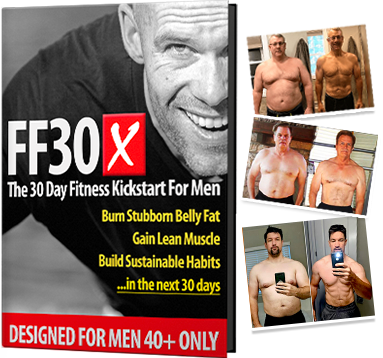
LEARN MORE ABOUT FF30X
See the FF30X Program overview here. You’ll discover how this proven Fit Father Program can help you lose weight and actually keep it off – without the complication and restriction of normal diets. »
*Please know that weight loss results and health changes/improvements vary from individual to individual; you may not achieve similar results. Always consult with your doctor before making health decisions. This is not medical advice – simply very well-researched info on nutrition for teenage athletes.
